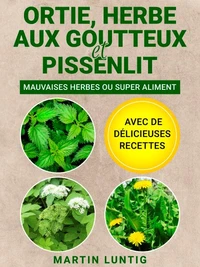Survival Instinct. 35 Life - Threatening Exceptional Situations and their Most Likely Ways Out
Par :Formats :
Disponible dans votre compte client Decitre ou Furet du Nord dès validation de votre commande. Le format ePub est :
- Compatible avec une lecture sur My Vivlio (smartphone, tablette, ordinateur)
- Compatible avec une lecture sur liseuses Vivlio
- Pour les liseuses autres que Vivlio, vous devez utiliser le logiciel Adobe Digital Edition. Non compatible avec la lecture sur les liseuses Kindle, Remarkable et Sony
 , qui est-ce ?
, qui est-ce ?Notre partenaire de plateforme de lecture numérique où vous retrouverez l'ensemble de vos ebooks gratuitement
Pour en savoir plus sur nos ebooks, consultez notre aide en ligne ici
- Nombre de pages63
- FormatePub
- ISBN978-3-98594-019-6
- EAN9783985940196
- Date de parution05/07/2021
- Protection num.Digital Watermarking
- Taille1 Mo
- Infos supplémentairesepub
- ÉditeurTacet Books
Résumé
The unconditional will to live and to continue to be - this obvious basic need forms the basis of all human life. As with all mammals, the survival instinct is innate in humans. We always strive to preserve our health and our lives, have a great need for security and protection and are constantly on the lookout to avoid danger. The survival instinct is also called "self-preservation instinct" and it arises from a combination of innate behaviour, learned reactions, and conscious decisions.
The term "instinct" is still not precisely defined. In addition to genetic predispositions, experience values and epigenetics are added in the course of life. Inherited and acquired behaviour interlock like clockwork, intermingle, and in this way give rise to our instinct for self-preservation. In the following chapters, we would like to show you various dangerous situations, some of which are not so rare.
We admit that some of the things mentioned will probably never happen to you, as they are rather unusual events. However, our principle is: "Better safe than sorry!" and it certainly never hurts to acquire knowledge that can help you in every conceivable situation.
The term "instinct" is still not precisely defined. In addition to genetic predispositions, experience values and epigenetics are added in the course of life. Inherited and acquired behaviour interlock like clockwork, intermingle, and in this way give rise to our instinct for self-preservation. In the following chapters, we would like to show you various dangerous situations, some of which are not so rare.
We admit that some of the things mentioned will probably never happen to you, as they are rather unusual events. However, our principle is: "Better safe than sorry!" and it certainly never hurts to acquire knowledge that can help you in every conceivable situation.
The unconditional will to live and to continue to be - this obvious basic need forms the basis of all human life. As with all mammals, the survival instinct is innate in humans. We always strive to preserve our health and our lives, have a great need for security and protection and are constantly on the lookout to avoid danger. The survival instinct is also called "self-preservation instinct" and it arises from a combination of innate behaviour, learned reactions, and conscious decisions.
The term "instinct" is still not precisely defined. In addition to genetic predispositions, experience values and epigenetics are added in the course of life. Inherited and acquired behaviour interlock like clockwork, intermingle, and in this way give rise to our instinct for self-preservation. In the following chapters, we would like to show you various dangerous situations, some of which are not so rare.
We admit that some of the things mentioned will probably never happen to you, as they are rather unusual events. However, our principle is: "Better safe than sorry!" and it certainly never hurts to acquire knowledge that can help you in every conceivable situation.
The term "instinct" is still not precisely defined. In addition to genetic predispositions, experience values and epigenetics are added in the course of life. Inherited and acquired behaviour interlock like clockwork, intermingle, and in this way give rise to our instinct for self-preservation. In the following chapters, we would like to show you various dangerous situations, some of which are not so rare.
We admit that some of the things mentioned will probably never happen to you, as they are rather unusual events. However, our principle is: "Better safe than sorry!" and it certainly never hurts to acquire knowledge that can help you in every conceivable situation.







